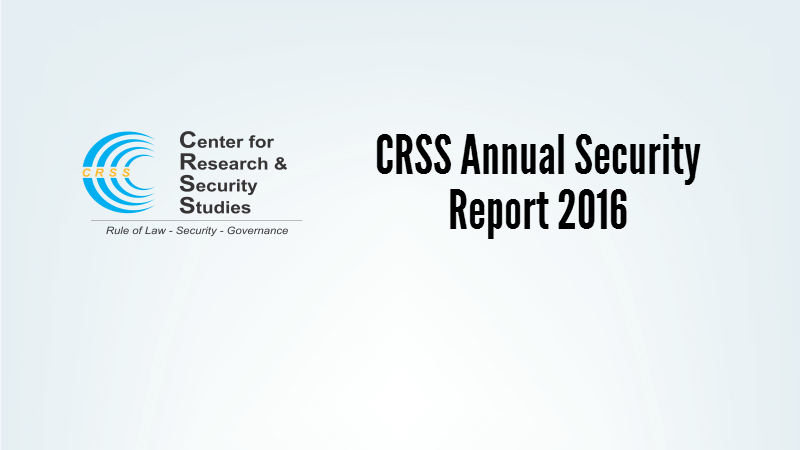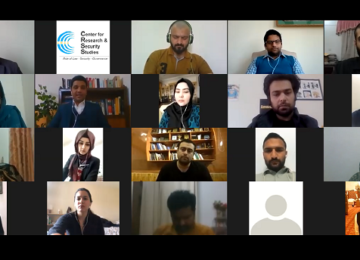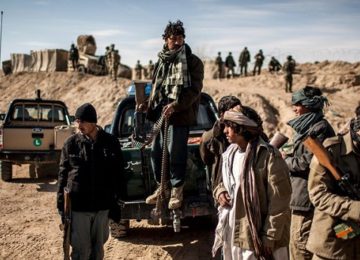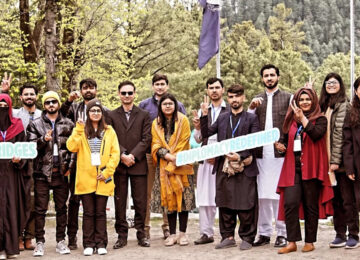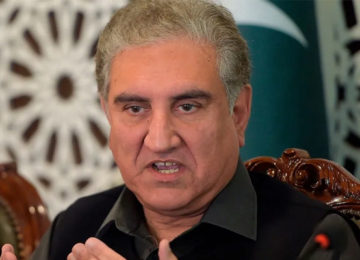Following report by Pakistan Forward, USA, is based on the annual security report 2016 by the Center for Research and Security Studies (CRSS) which states that as many as 149 Pakistani militants were killed in Afghanistan in the last two years – 111 in 2016 and 38 in 2015 , by US drones, the Afghan armed forces and the Pakistani military’s crackdown against terrorists in the border regions. This statistical evidence suggests that these terrorists fled the Pakistan operations and set up shelters mostly in eastern Afghanistan.
Report: Stepped-up action against militants in Afghanistan, Pakistan ‘paying off’
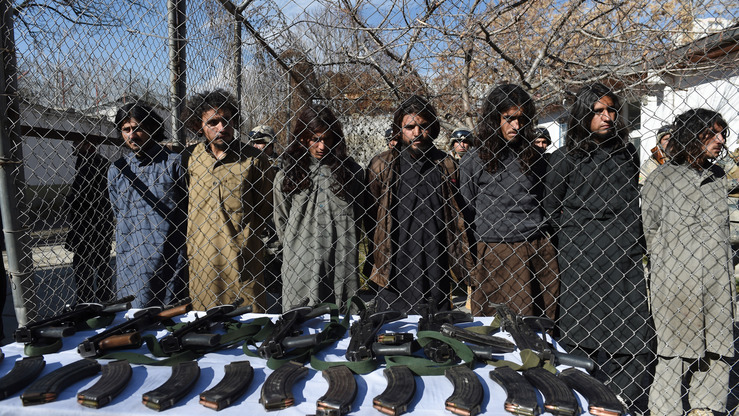
The security crackdown leaves no room for militant safe havens on either side of the Pakistan-Afghanistan border.
Stepped-up actions against militants in Afghanistan and Pakistan are paying off, according to the Center for Research and Security Studies (CRSS) 2016 Annual Security Report.
Pakistani militants hiding across the border in Afghanistan are no longer finding safe havens there, data show.
During the past two years, 149 Pakistani militants were killed in Afghanistan — 111 in 2016 and 38 in 2015, the Islamabad-based security think tank reported.
“Most of the militants killed in Afghanistan belonged to the Tehreek-e-Taliban Pakistan (TTP) and had taken shelter in Afghanistan,” CRSS Executive Director Imtiaz Gul told Pakistan Forward.
The killing of TTP and LeJ militants and commanders in Afghanistan proves that elements of those banned Pakistani militant organisations have relocated, he said.
No safe havens for militants
Prior to the Pakistani army’s Operation Zarb-e-Azb, those elements had developed safe havens in North Waziristan, Gul said.
“However, when Operation Zarb-e-Azb was launched [in June 2014], the leaders of terror outfits and their members had no choice but to take refuge in Afghan border areas,” he said.
Moreover, in 2015 TTP and LeJ elements declared their allegiance to the “Islamic State of Iraq and Syria” (ISIS) in Afghanistan, and began operating in both Afghanistan and Pakistan, according to Gul.
“The killing of militants in Afghanistan and in Pakistan in the past two years has caused a serious setback to the terrorists’ network, infrastructure and [ability to carry out] militant attacks,” he said.
In Pakistan, security forces killed 3,038 Pakistani militants in various parts of the country over the past two years — 2,233 in 2015 and 805 in 2016, the CRSS report said.
In addition, 25 foreign militants, criminals and spies were killed in Pakistan in 2016.
Fighting a common enemy
“Security forces’ actions against militants in Afghanistan and Pakistan have broken the back of the militants in both countries,” Brig. (ret.) Mehmood Shah of Peshawar, former security secretary for the Federally Administered Tribal Areas (FATA), told Pakistan Forward.
“The way the security forces of the two countries are targeting their common enemy, militants, [indicates] that Pakistan and Afghanistan are reading from the same page in eliminating terrorism,” he said.
Air strikes and Afghan and Pakistani military operations in border areas have inflicted heavy terrorist casualties, Shah said.
“Pakistan and Afghanistan are enhancing their intelligence co-operation and stepping up further action against the Taliban and ISIS to curb militancy,” he said.
Operation Zarb-e-Azb and the new military Operation Radd-ul-Fasaad have degraded the might of the militants and their ability to carry out terrorist attacks, he said.
Militants distort Islam, mislead youth
The militant groups received another blow with the surrender of former TTP spokesman Liaquat Ali, alias Ehsanullah Ehsan, to the Pakistani army, Shah said.
Militant groups have been misusing religion as a tool to plunder and kill innocent people for their own gains, he said in his confessional video released April 26.
Ehsan expressed disgust with militant commanders who distort Islam and propagandise youth.
“The so-called ‘jihadists’ have misled people in the name of Islam, especially the youngsters,” he said. “They never followed Islam in its true spirit or by the standards they demand of others.”
Ehsan’s statement and his call for other militants to lay down their arms “were a breakthrough in discouraging militancy in Pakistan and in Afghanistan”, said Shah.
United against extremism
“Military operations and targeted intelligence-based operations by security officers in Karachi and other parts of the country have brought the graph of militancy to the lowest level since 2015,” Murtaza Mughal, chairman of the educational NGO Nazaria-e-Pakistan Centre’s Islamabad chapter, told Pakistan Forward.
“The Taliban and other militant groups cannot mislead the masses for long in the name of religion, and a vast majority of Pakistanis have denounced extremism and militancy,” he said.
“The whole nation is convinced that there is no room for bloodshed in Islam, a religion that advocates tolerance and peace across the globe,” he said.
Mughal lauded the sacrifices of Pakistani security forces, who have defeated militants on many fronts, to revive peace and stability in the country.
“Operations Zarb-e-Azb and Radd-ul-Fasaad have ended the power of and awe towards the Taliban throughout Pakistan, and now the militants are unable to find any safe haven in the country,” he said.
See original report here.



